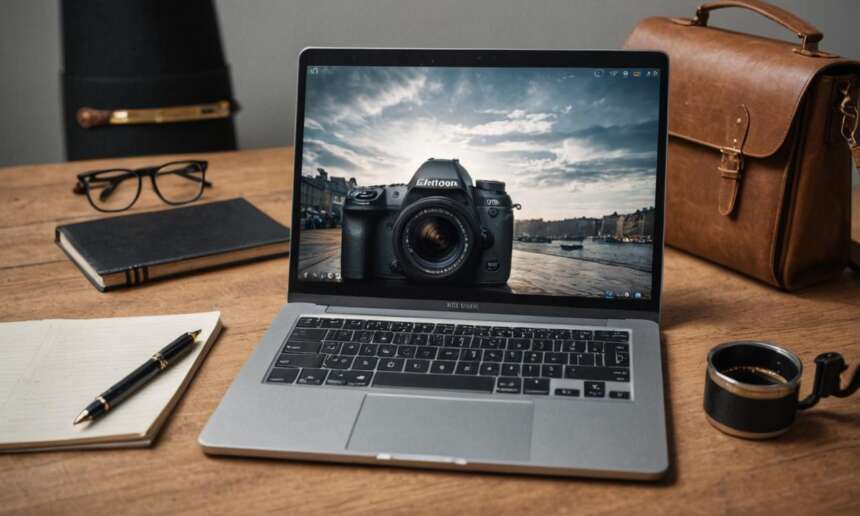If you have a passion for both fashion and journalism, becoming a fashion journalist can be an exciting and fulfilling career path. Fashion journalism involves reporting, analyzing, and critiquing fashion trends, events, and industry news. It’s a dynamic field that requires a unique blend of writing skills, industry knowledge, and creativity. Here, we’ll outline the steps you can take to embark on this journey and carve out your niche in the world of fashion journalism.
Cultivate Your Writing Skills
Strong writing skills are essential for any journalist, and fashion journalism is no exception. Practice writing regularly, honing your ability to craft compelling narratives, conduct interviews, and express your opinions eloquently. Pay attention to grammar, syntax, and style, as these elements contribute to the clarity and impact of your writing.
Develop Your Fashion Knowledge
Immerse yourself in the world of fashion by staying informed about current trends, designers, brands, and industry developments. Read fashion magazines, follow influential bloggers and social media influencers, attend fashion shows and events, and visit museums and exhibitions to deepen your understanding of fashion history and culture.
Build Your Portfolio
Create a portfolio showcasing your writing samples, including articles, reviews, interviews, and features related to fashion. Consider starting a fashion blog or contributing articles to online publications to gain experience and exposure. Your portfolio will serve as a testament to your skills and expertise when applying for jobs or freelance opportunities.
Pursue Relevant Education
While a formal education in journalism or fashion isn’t always required, pursuing relevant coursework or degrees can provide you with valuable knowledge and credentials. Consider enrolling in journalism, communication, or fashion programs that offer courses in writing, reporting, photography, and fashion history.
Network and Collaborate
Networking is crucial in the competitive world of fashion journalism. Attend industry events, join professional organizations, and connect with fellow journalists, editors, designers, and industry insiders. Collaborate on projects, seek mentorship, and leverage your connections to access opportunities and expand your reach.
Internships and Freelance Work
Gain hands-on experience through internships at fashion magazines, newspapers, websites, or PR agencies. Internships provide valuable insights into the day-to-day workings of the industry and allow you to build relationships with professionals in the field. Additionally, consider freelancing for various publications to diversify your portfolio and gain exposure.
Stay Versatile and Adapt
The landscape of fashion journalism is constantly evolving, with new platforms, technologies, and trends emerging regularly. Stay adaptable and versatile, willing to embrace change and explore different formats, from traditional print to digital media, video content, podcasts, and social media. Continuously refine your skills and stay abreast of industry developments to remain relevant and competitive.
Be Passionate and Persistent
Passion is the driving force behind successful fashion journalists. Stay true to your interests and convictions, and let your enthusiasm shine through in your writing. Be prepared to face challenges and setbacks along the way, but remain persistent in pursuing your goals. With dedication, hard work, and a genuine love for fashion journalism, you can carve out a fulfilling career in this dynamic and exciting field.
Frequently Asked Questions
Here are some common questions about becoming a fashion journalist:
| Question | Answer |
|---|---|
| Do I need a formal education in fashion journalism? | While it’s not always required, pursuing relevant coursework or degrees can provide valuable knowledge and credentials. However, practical experience and a strong portfolio are often equally important. |
| How can I stay updated with the latest fashion trends? | Staying informed about current trends involves regularly reading fashion magazines, following influential bloggers and social media influencers, attending fashion shows and events, and exploring fashion-related exhibitions and museums. |
| What are some ways to network in the fashion journalism industry? | Networking opportunities include attending industry events, joining professional organizations, connecting with fellow journalists and industry insiders, and seeking mentorship or collaboration opportunities. |
| Is it necessary to have a fashion blog to become a fashion journalist? | While having a fashion blog can be beneficial for gaining experience and exposure, it’s not a strict requirement. Contributing articles to online publications and building a strong portfolio through various writing samples are also effective ways to showcase your skills. |
Expanding Your Reach
Expanding your reach as a fashion journalist involves leveraging social media platforms effectively. Utilize platforms like Instagram, Twitter, and LinkedIn to share your work, connect with industry professionals, and engage with your audience.
Specializing in Niche Areas
Consider specializing in niche areas within fashion journalism, such as sustainable fashion, luxury brands, streetwear culture, or fashion technology. Developing expertise in a specific area can set you apart and attract niche audiences.




